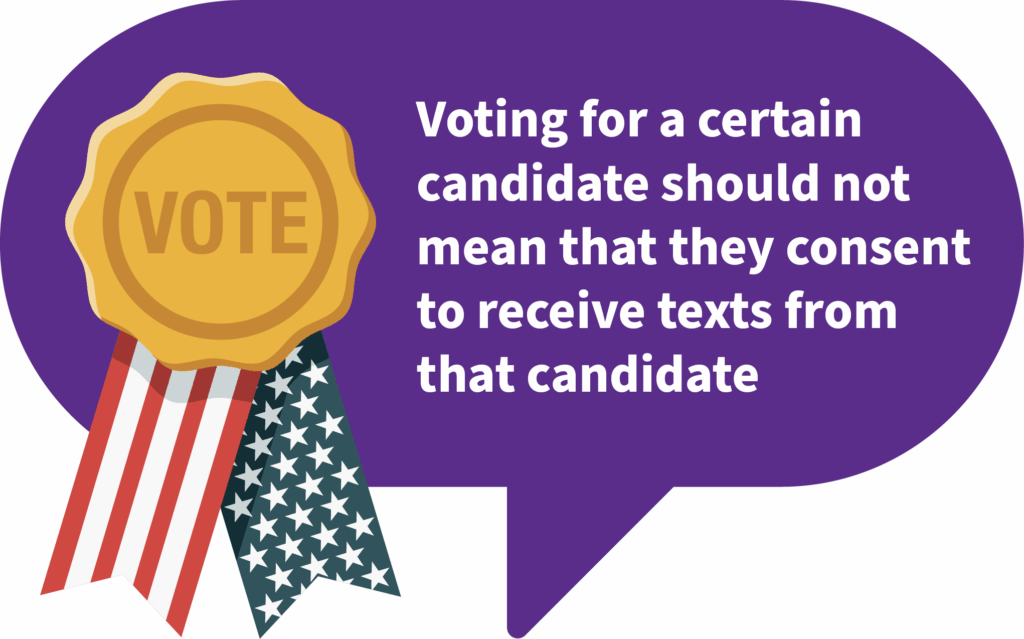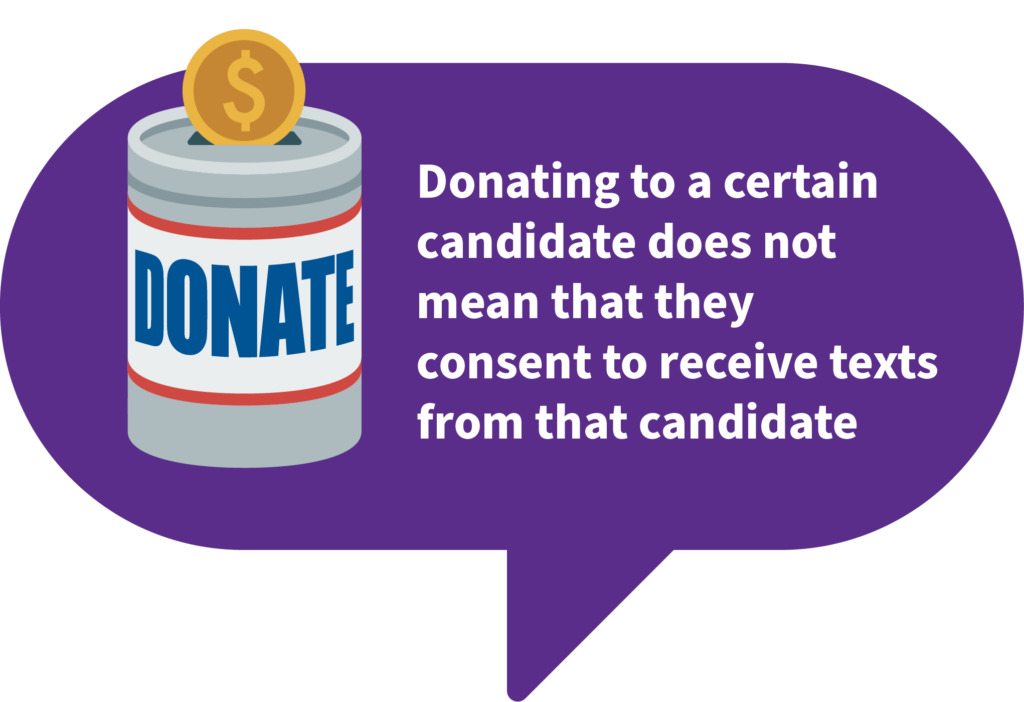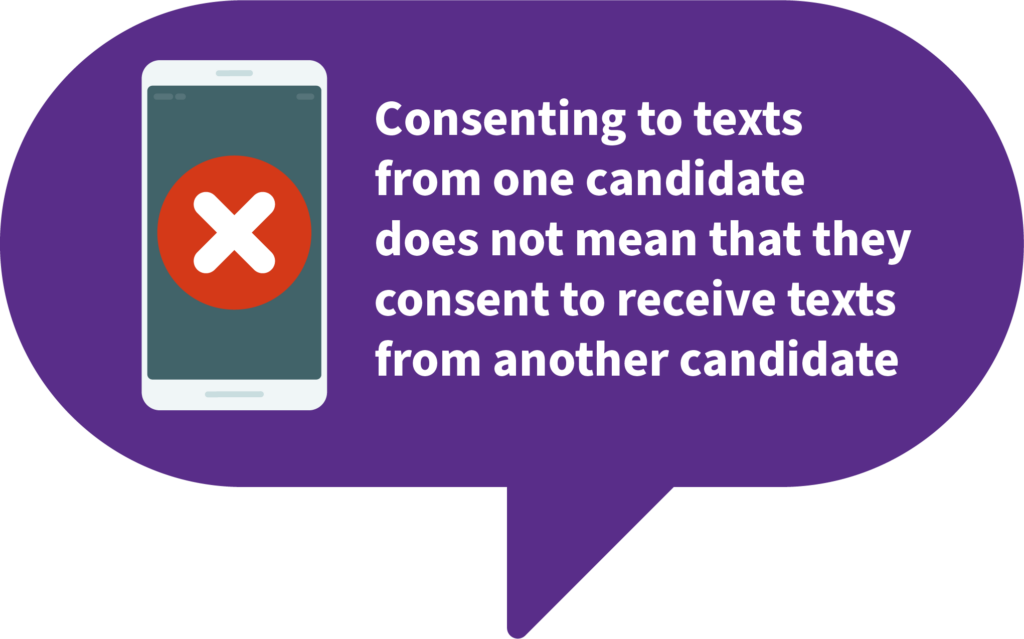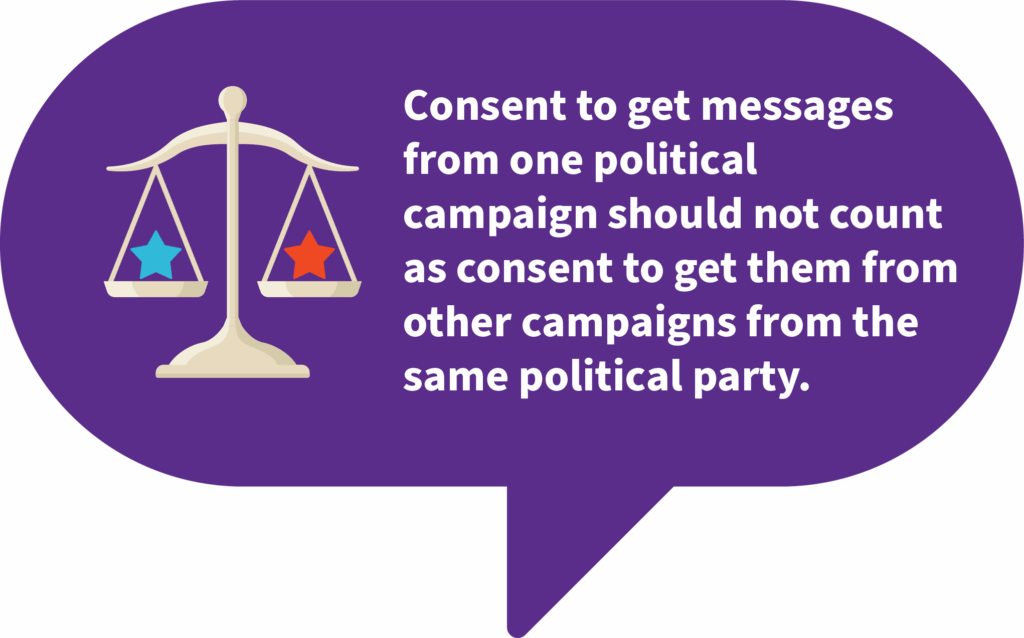By giving consent to one message sender, a consumer does not expect their telephone number to be used by another message sender through sale, lease, transfer, or other sharing of recipient lists. A consumer also does not expect to give recurring consent, so message senders should not pre-check boxes or take similar steps to opt consumers into recurring messages.
Tips for Campaigns
How to get consumer consent to send political text messages.
Political message senders are expected to obtain consent before sending consumers any messages, and as part of that process they should be informing consumers about the types of texts they can expect to receive. Doing so will help ensure political messaging campaigns engage those supporters and voters who have an expectation of exchanging text messages with the campaign. This can lead to better engagement with voters and increase fundraising opportunities.
Consumers feel most strongly about having the ability to opt-out of unwanted political texts – 85% of consumers agreed that easy stop or easy opt-out should be offered to consumers. Consumers also feel it is getting harder to opt-out. So campaigns are encouraged to ensure they are offering easy opt-out to consumers, and implementing opt-outs to stop sending unwanted messages to consumers.
There are many ways for political message senders to solicit and obtain a voter’s consent to receive text messages. For example, as described in CTIA’s Messaging Principles and Best Practices, one of the best ways to seek consent is to invite a consumer to check a box next to language that says, “I agree to receive text messages from this campaign,” alongside a clear and conspicuous description of the campaign and the types of messages the consumer can expect to receive if they opt-in. This can be provided online, on a form, or through other mechanisms that enable message senders to document consumers’ consent as described in the Messaging Principles.
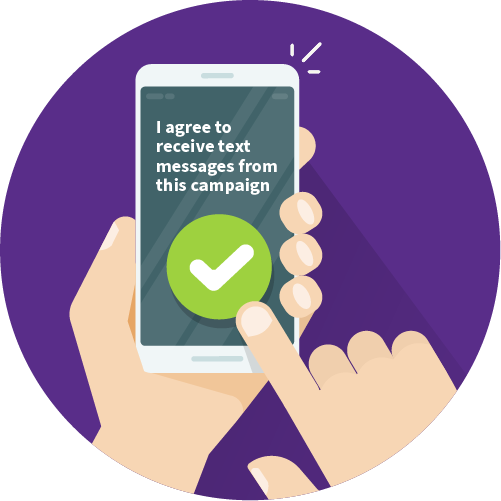
Some other examples of reasonable consent mechanisms, when accompanied by appropriate consumer disclosures, include, but are not limited to:
- Entering a telephone number through a website
- Clicking a button on a mobile webpage
- Sending a message from the consumer’s mobile device that contains a keyword
- Initiating the text message exchange in which the campaign replies to the consumer only with responsive information
- Signing up at a point-of-sale or other message-sender on-site location
- Opting-in over the phone using interactive voice response technology
By giving consent to one message sender, a consumer does not expect their telephone number to be used by another message sender through sale, lease, transfer, or other sharing of recipient lists.
When collecting consent, message senders should display clear and conspicuous disclosures (known as “calls to action”) about the type and purpose of the messaging the consumer will receive. As described in CTIA’s Messaging Principles and Best Practices, message senders should obtain proper consumer consent for each messaging campaign supported.
